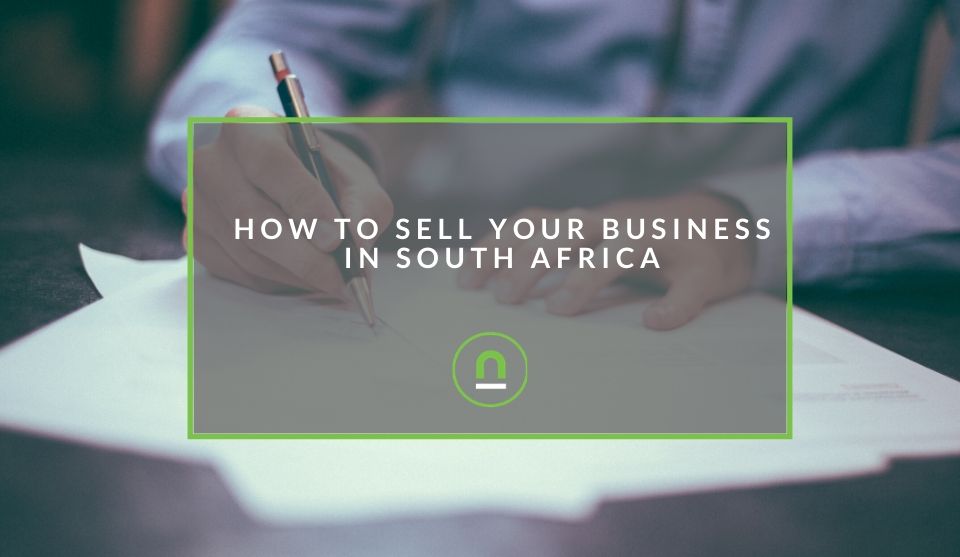Recent posts

Money Talks
XRP vs. Stablecoins: Which Is Better for Cross-Border Payments in 2026?
28 January 2026

Press Releases
Sleep Expert Cautioning Against TikTok’s ‘Mouth Taping’ Trend
28 January 2026

Press Releases
Why Vintage Watches Are the Hottest Trend in 2026
27 January 2026

Press Releases
Africaworks Accelerates The Rollout Of Real Estate Investment Platform
20 January 2026
Popular posts
Extravaganza
Trending Music Hashtags To Get Your Posts Noticed
24 August 2018
Geek Chic
How To Fix iPhone/iPad Only Charging In Certain Positions
05 July 2020
Extravaganza
Trending Wedding Hashtags To Get Your Posts Noticed
18 September 2018
Money Talks
How To Find Coupons & Vouchers Online In South Africa
28 March 2019
How To Sell Your Business In South Africa
21 April 2020 | 0 comments | Posted by Che Kohler in nichemarket Advice
Business owners around South Africa have taken risks in starting these institutions and those who have made a success of the endeavour in this country are to be praised as they went against the odds. It's a well-known fact that the majority of businesses fail, which makes it all the more rewarding when it turns out to be a profitable venture. It may take months; it may take many years but building a successful business is not easy, which is why selling one is also a complicated process.
Disregarding the sentimental value a business holds in an owners mind, letting go of your business has several legal and financial implications. You will need the help of a third party such as a business broker, accountant and an attorney to proceed.
Selling your business may also not be a guarantee of huge profits depending on the market, the timing of the sale, the assets the enterprise holds and the strength of the company in its prospective market.
Selling a business can be a lengthy process and requires several considerations, such as:
1. Reasons for the sale
It's a common assumption that no one walks away from a successful business, and this will be the first question on any potential buyers mind. The reason must be made known if it has implications on the sale or you run the risk of alienating potential buyers and reduce your chance of receiving multiple offers.
Owners commonly sell their businesses for any of the following reasons:
- Retirement
- Partnership disputes
- Illness or death
- Becoming overworked
- Boredom
- Pivoting to a new idea
- Immigration
Your business doesn't have to be profitable or wildly profitable to be sold if there is potential for growth, but this can make it harder to attract buyers.
If you're want to ensure your business is an attractive sale, consider the following key selling points that any buyer would be interested in reviewing, such as:
- Increasing profits
- Consistent income figures
- A strong customer base
- A major contract that spans several years
- Expansion opportunities
- A strong balance sheet
2. Preparation time
Time is a significant factor when selling a business and you need to prepare yourself and your business even years ahead if you're thinking of making a successful sale. Taking the time to prepare your financial records, business structure, assets, staffing requirements and customer base to reach its peak profitability will make it all the more attractive for buyers.
3. Business Valuation
The next step is deciding on an acceptable price range; the business owner is notorious for pricing themselves out of a sale because of the emotional attachment to a business and don't always adhere to the fundamentals. You may want to reach out to an accountant or business appraiser to get a fair market valuation and reasons for the estimate. These official statements and documentation can serve to back up your listing price.
4. Reaching out to a broker
Depending on the settlement you're willing to accept you may want to sell it privately or if you're able to provide margin on the sale and avoid a lot of the admin and profiling of sales agreements you could commission the sale to a business broker. It's also the best route when the transaction is to a trusted family member or current employee, so you have a third party without emotional ties involved.
In other circumstances, a broker can help free up time for you to keep the business running while they focus on getting you the highest price possible since their incentive is based on the commission of the sale.
Protip! If you want to improve your chances of getting offers you can also list on South African business selling platforms should you be fine with the fact that your business sale is public knowledge.
5. Preparing documents
Gather your financial statements and tax returns dating back three to four years and review them with an accountant. Also create documentation that covers all assets, the order book, maRketing material, customer contacts and any admin you feel is relevant to your business.
Depending on the complexity of your business and any propriety operations or technology, you should create guides describing how business is conducted and an up-to-date operating manual.
6. Dealing with offers
A business sale may take between six months and two years to gather enough interest and start attracting offers.
- Get two to three potential buyers just in case the initial deal falters.
- Stay in contact with the potential buyers.
- Find out whether the potential buyer pre-qualifies for financing before giving out information about your business.
- If you plan to finance the sale, work out the details with an accountant or lawyer so you can reach an agreement with the buyer.
- Allow some room to negotiate, but stand firm on a price that is reasonable and considers the company's future worth.
Also, the buyer may have you sign a non-compete agreement, in which you would agree not to start a new business to compete with the one you're selling.
7. Managing the money
Speak with a financial professional to determine the best way to handle the incoming cash from the sale. Create a plan outlining your financial goals, and learn about any tax implications associated with the sudden wealth as well as way to invest and generate an income off your capital. At the same time, you decide what to do with your money.
Take some time – at least a few months – before spending the profits from the sale as you see what the market offers you and any opportunities you could take advantage of with this liquidity you now have available.
Moving on from your business
As you can now tell, selling a business is not a straight forward sale and is time-consuming as well as an emotional venture for some entrepreneurs. The gruelling process may seem tedious but once the sale is concluded you can move on with freedom, a better bank balance and perhaps new opportunities like wanting to retire or take advantage of a boom in the market and take some time off.Time to shut up shop
Have you sold your business in South Africa? How was your experience of the process? Let us know in the comments section down below.Contact us
If you would like to know more about marketing for your business then don’t be shy we’re happy to assist. Simply contact us
Are you looking to promote your business?
South African small business owners can create your free business listing on nichemarket. The more information you provide about your business, the easier it will be for your customers to find you online. Registering with nichemarket is easy; all you will need to do is head over to our sign up form and follow the instructions.
If you require a more detailed guide on how to create your profile or your listing, then we highly recommend you check out the following articles.
Recommended reading
If you enjoyed this post and have a little extra time to dive deeper down the rabbit hole, why not check out the following posts on side hustles.
- 5 Tips for Funding Your Small Business
- Small Businesses That Can Go Digital During The Lockdown
- 10 Retail Market Secrets That Every Small Business Should Know
- Don't Ignore These 4 Digital Marketing Tips for Small Businesses
- 14 Ways To Leverage Facebook As A Small Business
- How South Africans Can Kickstart Their Side Hustle
- Alternative Funding Solutions a Small Business Needs to Know
- How South African Small Businesses Waste Money
Tags: Business
You might also like
Why Vintage Watches Are the Hottest Trend in 2026
27 January 2026
Posted by Phoebe B in Press Releases
Jewellery expert reveals why vintage watches are the hottest trend in 2026 and how to care for them while you build your watch collection
Read moreXRP vs. Stablecoins: Which Is Better for Cross-Border Payments in 2026?
28 January 2026
Posted by Pham Van in Money Talks
XRP or Stablecoins? Discover which wins for cross-border payments in 2026. Compare speed, costs, and stability in our latest global finance guide.
Read more{{comment.sUserName}}
{{comment.iDayLastEdit}} day ago
{{comment.iDayLastEdit}} days ago
 {{blogcategory.sCategoryName}}
{{blogcategory.sCategoryName}}
